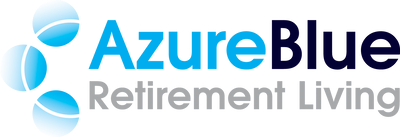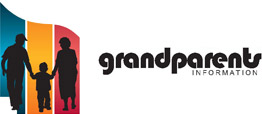When specialists unite for better stroke outcomes
When it comes to recovery following a stroke, BlueCare knows the importance of a multidisciplinary approach. We go behind the scenes with dedicated health professionals to discover how teamwork creates better outcomes for patients.
After someone has had a stroke, rehabilitation is one of the most important pieces in the recovery puzzle. And the sooner it begins, the better, says BlueCare Physiotherapist Ingvar Colville, who is just one of the dedicated health professionals providing support services for people living in the community following a stroke.“Rehabilitation should commence as rapidly as possible once the person is medically stable,” he says. “Engaging actively in any medically directed rehabilitation program early is generally associated with better long-term outcomes.”
Stroke recovery isn’t a one-person job. Effective rehabilitation benefits from a coordinated multidisciplinary approach where each specialist brings unique expertise to address the complex, interconnected challenges that survivors face. Recovery touches every aspect of a person's life, from movement and communication to daily living skills and emotional wellbeing, which is why it takes an entire team working together to achieve the best possible outcomes.
How the team comes together
“The rehabilitation team collaborates to assess a person's ability in consideration of the prior level of function and type of injury sustained,” explains Ingvar.
This team typically includes physiotherapists, speech pathologists, occupational therapists, and other specialists who work with what Ingvar describes as “complementary strategies such as retraining movement and communication, providing education and advice, and prescribing equipment or devices to reduce the impacts of a specific impairment.”
The team then works to identify achievable goals and help develop strategies designed to improve ability and minimise any lasting issues.
For example, physiotherapists will often work collaboratively with speech pathologists to implement communication strategies that enable patients to understand and effectively participate in relearning movement strategies.
“When people think of speech pathology, they often think just about talking – but our role in stroke recovery is much broader,” explains Michele Brennan, a speech pathologist with BlueCare. “A stroke can affect communication, memory, understanding language, reading, and writing. On top of that, many people develop swallowing difficulties. Our goal is to help people reconnect with their world, whether that's ordering a coffee, sharing a story with family, or being able to enjoy a meal safely.”
Collaboration is crucial for the rehabilitation process. The speech pathologist might work with the physiotherapist to set up things like visual prompts, gesture cues, or communication boards, says Michele. In this way, the collaboration extends to the patient too. “It means the persona can participate actively in their physical therapy, which leads to better outcomes,” Michele explains.
Hidden challenges
Stroke survivors often face challenges that aren't immediately obvious. “Even a short chat can be exhausting, because the brain is working overtime. Voice changes are another area people don't always expect, and there are swallowing difficulties, which may not show obvious signs,” says Michele.
“Every stroke survivor is different, so our first step is always to understand their unique situation and goals.”“We use a mix of formal assessments and real-life tasks. We also talk with the person and their family about what matters most to them; maybe it's being able to chat with grandchildren, or feeling confident at mealtimes. From there, we build an individualised therapy plan.”
“A team approach ensures all aspects are thoroughly considered and both improvement following injury and adaptation to any residual impairments are addressed,” Ingvar explains.
Teamwork makes all the difference
Working in stroke rehabilitation, certain patients and their journeys leave lasting impressions on the healthcare team. And those cases where collaborative care makes the impossible seem possible tend to stand out above the rest.
Michele recalls one gentleman she worked with who had both communication and mobility challenges, where the comprehensive nature of team-based care led to remarkable results that wouldn't have been possible with isolated treatment.
“Our Physiotherapist was helping him regain his confidence with walking, but the client couldn't always say when he was in pain or needed a rest. The Speech Pathologist introduced a simple communication board with pictures and key words. That allowed the client to participate fully in physiotherapy sessions, progress more safely, and avoid frustration. Over time, not only did his physical abilities improve, but he also gained the confidence to re-join social and community activities. It showed how powerful teamwork can be in recovery.”
Without this kind of collaborative approach, stroke survivors would face significant gaps in their recovery journey. Individual therapy disciplines, while valuable, cannot address the interconnected nature of a stroke's effect.
The team beyond the professional team
“Families play a huge role in recovery,” Michele says. “We train families in practical, everyday techniques, like slowing down conversations, using short sentences, or making mealtimes safe.”
It’s also beneficial for family to be present during therapy sessions, so they can see what works and carry it over into daily life, she says.
Ingvar agrees, emphasising families are critical in supporting the person both physically and emotionally through the recovery period.
“The most important thing to know is that support doesn't stop when the client leaves hospital,” says Michele.
“At BlueCare, we provide support services in the community, at home, and via telehealth. It could be as simple as enjoying a favourite meal again, or as big as regaining the confidence to join social conversations. Stroke recovery takes time, but no one has to do it alone.”
BlueCare's team-based approach ensures stroke survivors receive comprehensive support to reclaim their independence and quality of life. When specialists work together, the possibilities for recovery are far greater than the sum of their individual parts.













